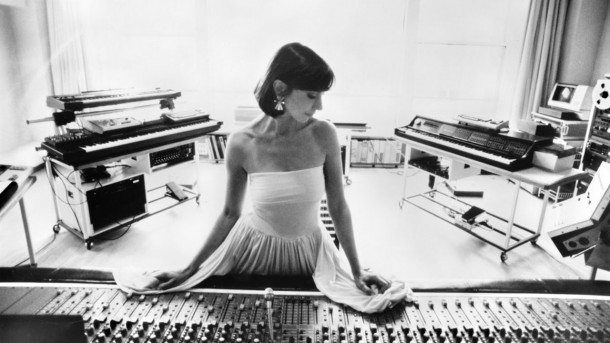
Dir.: Bradford Thomason, Brett Whitcomb; Documentary with Suzanne Ciani; USA 2017, 74 min.
Bradford Thomason and Brett Whitcomb (County Fair in Texas), share the roles of writer, producer, DoP to create this lively portrait of Suzanne Ciani, pianist, composer and electronic music innovator, who brought us New Age and influenced bands such as Roxy Music.
Encouraged by her mother to play the piano and compose, Suzanne Ciano got an MA in classical music at Wellesley College, Maryland in 1968 and found University of California, Berkeley, quite a culture shock after the sheltered years in the all-women college of Wellesley where “the appearance of a man in college grounds caused a tremor”. Berkeley was one of the main centres of the protest movement, and she was politicised; spurning a marriage proposal from a Harvard law-student when she feel in thrall to synthesiser designer and composer of electronic music, Don Buchal. He would go on to influence her chosen career as an electronic music composer, changing the face of advertising and the sounds we hear today.
For Ciani synthesisers are like living beings, you can manipulate and develop emotions from them allowing the creation of sounds. But at a certain point, she had to choose between the music business (where women were still crassly under-represented) and her life as an artist. “At a certain point I composed music for X-rated films”. A way out of this dilemma was the advertising industry, where she would revolutionise the sound effects for Coca Cola (the sound of drinking the beverage), and most ironical in hindsight – the famous “Bull in the china shop” ad for Merrill Lynch, which ends with the slogan “A brand apart”.
Ciani found she could create sound effects for everything from pinball machines to the ghostly computerised language in a GE dishwasher ad, “where the machine introduces itself like a human”. Ciani wanted “technology to be sensual”. But music was to follow and after record producers rejected her first album Seven Waves (1982) in the USA and Europe, she found success in Japan with her second album The Velocity of Love and New Age was born.
Ciani has by now recorded 21 sole albums, and five more with other artists, among them Roxy Music and Brian Ferry. Having avoided her ‘first love’ the piano, she returned to to it with Neverland (1988). During the 80s she suffered breast cancer, forcing her to take time out and move to a beach house in Bolinas in California, where she even found time for marriage, which lasted from 1994 to 2001. Having composed the music score for The incredible Shrinking Woman and two Mother Theresa documentaries, her versatility seems without borders, Suzanne Ciani is still travelling the country for exhibition concerts, explaining to young fans how it was to work with analogue material – a legend in her own time. AS